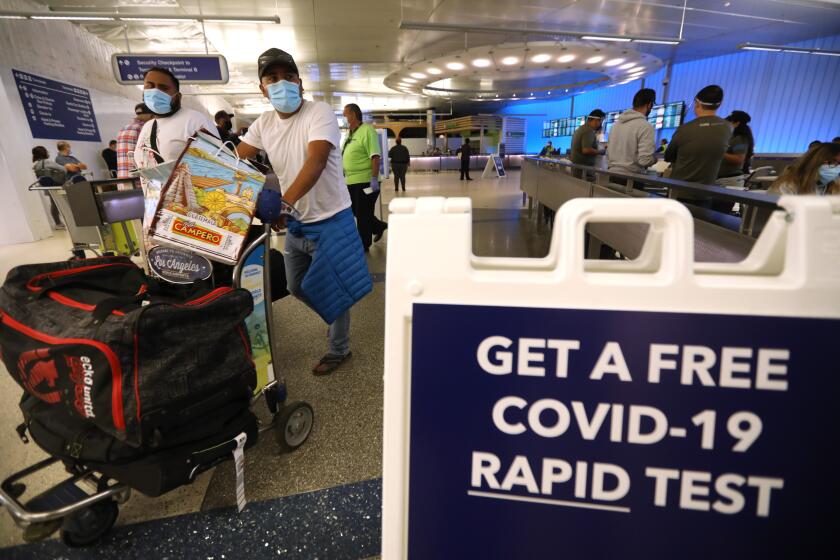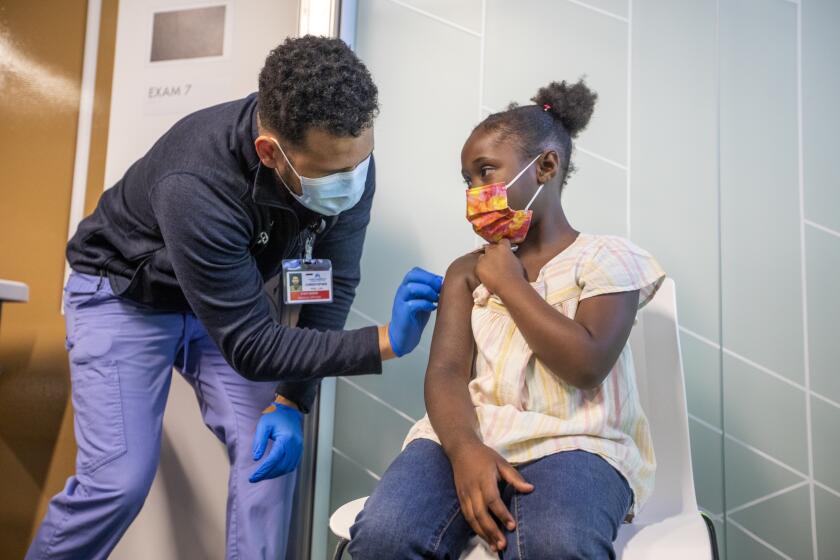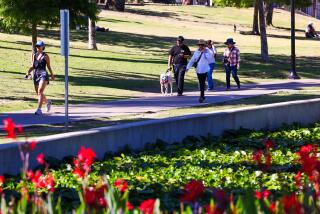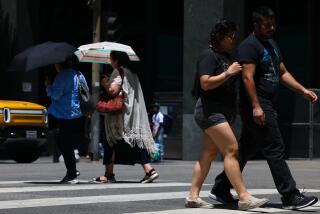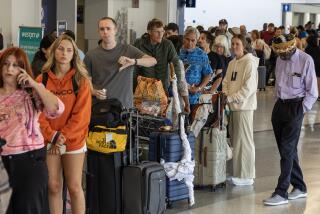COVID-19 tests are in high demand with the winter surge. Here’s how to get them
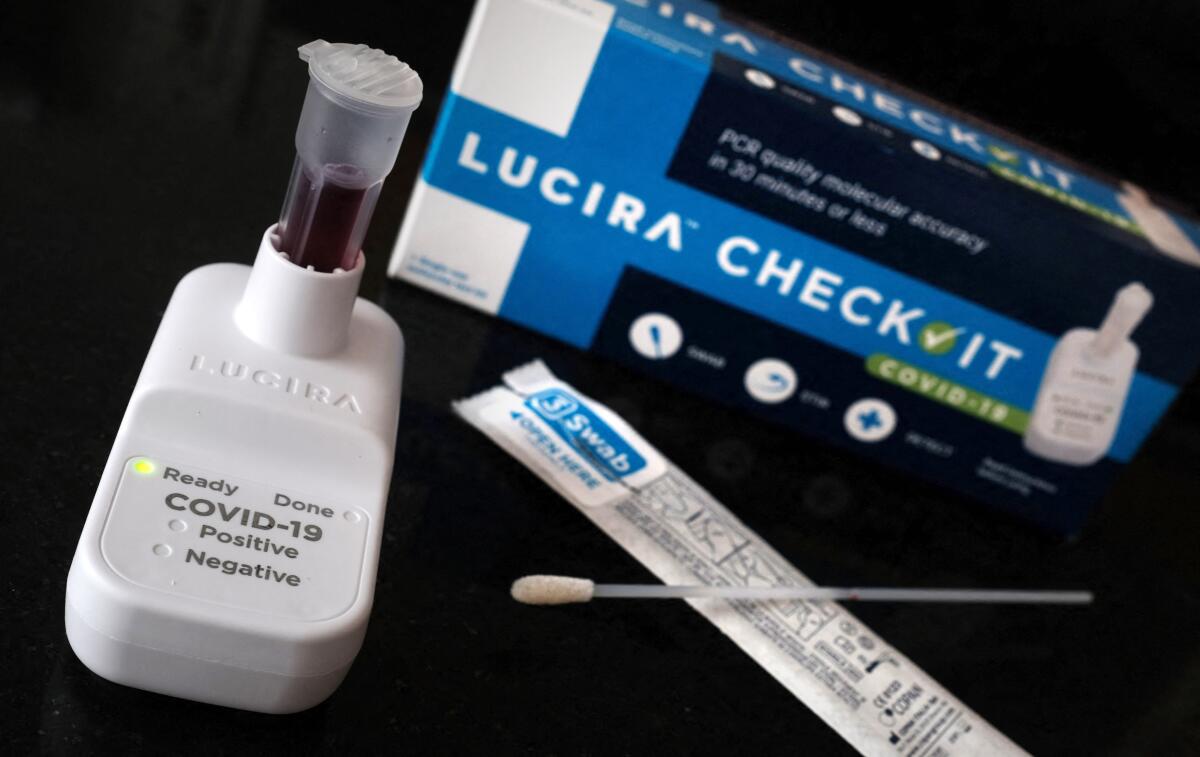
- Share via
With coronavirus cases rising and the Omicron variant threat growing, testing for COVID-19 has become more commonplace.
Many families who plan holiday events are using both home and outside tests to make sure it’s safe to gather.
There are hundreds of testing sites across Southern California, and rapid test kits can be bought at pharmacies or ordered online.
“If you’re going to be indoors, you all should be testing before you show up at that gathering,” Los Angeles County Public Health Director Barbara Ferrer has said.
L.A. County health officials reported more than 3,500 new coronavirus cases on Sunday, more than double the number of cases recorded just a few days before.
Testing
Testing at L.A. County-run sites are free, regardless of immigration status. Orange County residents can request free self-collection test kits that will be sent to them, and residents can submit specimens to the lab in an envelope with prepaid shipping.
“Even if you’re fully vaccinated, getting tested before or after gatherings or parties ... can make a difference in whether you expose someone you love to the virus,” said Dr. Dawn Terashita, associate director of L.A. County’s acute communicable disease control program.
Some experts think it would help to make some adjustments, but many health experts are also emphasizing the importance of seeing family and friends.
Testing sites
Here is information on getting tested:
A positive test
If you have symptoms, health officials say you should get tested. A negative rapid test result may seem promising, but Terashita suggested that a symptomatic person follow that test with a PCR test, in which a sample must be sent to a lab for analysis, with results coming back in one to two days.
Anyone who is symptomatic — even those who have a negative rapid test — should stay home and away from others, Terashita said. Rapid tests can result in a small number of people getting a negative test result when they are actually positive for the virus.
If a rapid test is positive, “you must consider yourself infected and isolate immediately,” Terashita said. You can consider following up the rapid test with a PCR test to confirm the infection.
Behavior
It’s irresponsible for people who test positive to continue going out and leaving home without adhering to isolation requirements, Ferrer said.
Those who test positive must stay home for at least 10 days after their symptoms began, or, if there are no symptoms, then at least 10 days after the test was taken.
Prepare for big spikes in COVID-19 hospitalizations and deaths in areas with low vaccination rates, experts say.
Timing
Dr. Paul Sax, an infectious diseases expert at Harvard Medical School, said during a UC San Francisco forum that when he visits his elderly parents, he takes a rapid test right before he sees them.
He said it’s important that people conduct the test as close as possible to the actual visit itself — not the day before.
Warning
Sax said he wouldn’t visit family if he had any signs of a respiratory illness, such as a scratchy throat, even if the rapid test results showed a negative result.
“People should not use rapid tests when they have a respiratory tract infection as a way of reassuring themselves falsely that they may not have COVID. I’ve heard that mistake made numerous times,” Sax said.
A negative rapid test result, while symptomatic for some kind of illness, doesn’t rule out a COVID-19 infection, he said.
“I would not go visit Grandma with a respiratory tract infection in the COVID-19 era, period,” Sax said.
A growing number of holiday events in Los Angeles County have been canceled or postponed amid a rash of new coronavirus cases.
Some tips
Here are some guidelines from Los Angeles County:
- Talk to your doctor about which test is right for you.
- If you have to be tested for screening purposes, such as for work or travel, make sure that you get a test that meets the requirements of your employer, airline or other institution.
- Before you get a test make sure that you know:
- What type of test you are being offered (NAAT or antigen)
- How long it will take to get your results
- How you will find out the results
- What precautions you should take while you wait for your results and what you should do if your result is positive or is negative.
- After you receive your test result, make sure that you understand what your result means and what to do next. You should be given a fact sheet about the test you received. If you did not, ask for one.
More to Read
Sign up for Essential California
The most important California stories and recommendations in your inbox every morning.
You may occasionally receive promotional content from the Los Angeles Times.
